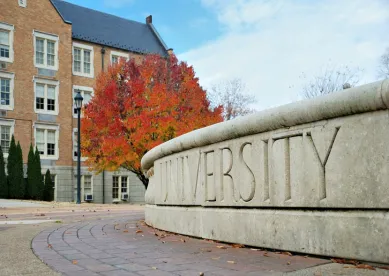The United States Court of Appeals for the Seventh Circuit rejected a professor’s claims that a university violated Title VII of the Civil Rights Act of 1964 (“Title VII”) and the First Amendment to the United States Constitution when it allegedly denied tenure because she reported sexual harassment to the university on behalf of a student and discussed shortcomings of the university’s sexual harassment policy.
The Court affirmed the dismissal of plaintiff’s Title VII claim. It concluded that, because the student was not an employee of the school, there was no unlawful employment practice prohibited by Title VII. The Court noted that there was no “suggestion in the complaint that in supporting the student, [plaintiff] was opposing unlawful employment discrimination, and therefore engaging in statutorily protected activity.”
Plaintiff’s claim that the university retaliated against her for engaging in protected speech under the First Amendment met a similar fate. The Court ruled that, “When a public employee speaks on matters pursuant to employment duties, that speech is not protected under the First Amendment.” Plaintiff alleged that she made the report because she believed it was her job to do so. The Court concluded that she had not provided a plausible basis for her argument that she was speaking as a citizen, and not an employee of the university, when she reported the harassment of the student.
The Court noted, “We have not ruled on whether allegations of retaliation against faculty who support students in bringing sexual harassment claims to university officials could state a claim for retaliation under Title IX” because the plaintiff did not make this argument.
Hatcher v. Board of Trustees of Souther Illinois University and Kimberly Kempf-Loenard, No. 15-1599 (7th Cir. July 14, 2016).




 />i
/>i
